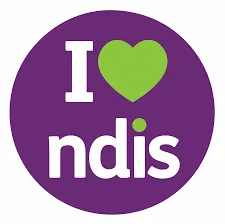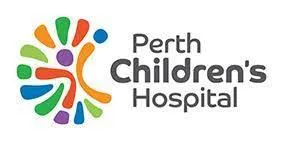All sessions booked ON March 9-22 will be offered on Zoom only
Existing Members Sign In Here >
AMANDA
LAMBROS
Your Source for Personal, Relationship
and Professional Growth
AMANDA
LAMBROS
Your Source for Personal,
Relationship
and Professional Growth
Learn from one of Australia's Leading Speaker & Educators in Relationships and Mental Health

Keynote Speaker &
Virtual Presenter
Are you looking for an inspirational speaker for your next conference or virtual event? Amanda will work with you to create a customised program for your event.

Workshops &
In-House Training
Are your teams in need of a breath of fresh air? Amanda draws from in-depth knowledge and experience to deliver transformative training for wellness teams, either face-to-face, or online.

Coaching &
Consulting
An outside perspective can make a significant difference to views and understanding within relationships and at workplaces. Contact Amanda today to see how her perspective could transform your relationship or wellness teams.
Learn from one of Australia's Leading Speaker & Educators
in Relationships and
Mental Health

Keynote Speaker &
Virtual Presenter
Are you looking for an inspirational speaker for your next conference or virtual event? Amanda will work with you to create a customised program for your event.

Workshops &
In-House Training
Are your teams in need of a breath of fresh air? Amanda draws from in-depth knowledge and experience to deliver transformative training for wellness teams, either face-to-face, or online.

Coaching &
Consulting
An outside perspective can make a significant difference to views and understanding within relationships and at workplaces. Contact Amanda today to see how her perspective could transform your relationship or wellness teams.
Mental Health and Wellbeing
is a Global Issue

Amidst the ongoing challenges posed by the COVID-19 pandemic and the evolving landscape of mental health, the need for support and guidance has never been more critical. As a seasoned Mental Health First Aid Facilitator with over two decades of experience as a therapist, Amanda Lambros remains dedicated to addressing the pressing mental health crisis affecting individuals, families, and corporate environments.
While the pandemic has cast a spotlight on mental health struggles, the true impact extends beyond the virus itself. Research continues to highlight a spectrum of issues—burnout, PTSD, compassion fatigue, wage disparities, interpersonal conflicts, vicarious trauma, and toxic leadership—exacting a toll on our most valuable asset: our people.
Amanda brings forth a wealth of experience, expertise, and lived understanding, aiming to tackle these universal challenges head-on. Her commitment to training and educating others in Mental Health First Aid and effective communication strategies remains unwavering. Through online mental health training, relationship coaching, counseling services, and certifications as a Certified Speaking Professional and Virtual Speaking Professional, Amanda provides a nurturing and insightful environment for growth and support.
In her quest to empower individuals and organizations, Amanda remains steadfast in her mission to equip them with the necessary tools to navigate today's adversities and foster resilient mental well-being.
Schedule a call with Amanda to find out more.
Mental Health and
Wellbeing is a Global Issue

Amidst the ongoing challenges posed by the COVID-19 pandemic and the evolving landscape of mental health, the need for support and guidance has never been more critical. As a seasoned Mental Health First Aid Facilitator with over two decades of experience as a therapist, Amanda Lambros remains dedicated to addressing the pressing mental health crisis affecting individuals, families, and corporate environments.
While the pandemic has cast a spotlight on mental health struggles, the true impact extends beyond the virus itself. Research continues to highlight a spectrum of issues—burnout, PTSD, compassion fatigue, wage disparities, interpersonal conflicts, vicarious trauma, and toxic leadership—exacting a toll on our most valuable asset: our people.
Amanda brings forth a wealth of experience, expertise, and lived understanding, aiming to tackle these universal challenges head-on. Her commitment to training and educating others in Mental Health First Aid and effective communication strategies remains unwavering. Through online mental health training, relationship coaching, counseling services, and certifications as a Certified Speaking Professional and Virtual Speaking Professional, Amanda provides a nurturing and insightful environment for growth and support.
In her quest to empower individuals and organizations, Amanda remains steadfast in her mission to equip them with the necessary tools to navigate today's adversities and foster resilient mental well-being.
Schedule a call with Amanda to find out more.
CURRENT & PAST CLIENTS





















CURRENT & PAST CLIENTS





















COMMUNICATION & RELATIONSHIP SPEAKER
Meet Amanda Lambros
A Certified Speaking Professional (CSP), Counsellor and corporate coach, Amanda draws on 20 years of experience as an Academic, Sexologist, Counsellor, Author and team leader.Amanda's inspiring and engaging talks and workshops bridge the gaps that exist between executives and teams.With Amanda's help, people become happier, more engaged and begin to feel appreciated and heard, which results in increased productivity and better overall outcomes.
Amanda's keynote topics include self-care as a priority and date night is cheaper than a divorce.

COMMUNICATION & RELATIONSHIP SPEAKER

Meet Amanda Lambros
A Certified Speaking Professional (CSP), Counsellor and corporate coach, Amanda draws on 20 years of experience as an Academic, Sexologist, Counsellor, Author and team leader.Amanda's inspiring and engaging talks and workshops bridge the gaps that exist between executives and teams.With Amanda's help, people become happier, more engaged and begin to feel appreciated and heard, which results in increased productivity and better overall outcomes.
Amanda's keynote topics include self-care as a priority and date night is cheaper than a divorce.
2K+
Clients Consulted
25
Years of Experience
19+
Certifications and Awards
99%
Success for Clients
2K+
Clients Consulted
25
Years of Experience
19+
Certifications and Awards
99%
Success for Clients
CLIENT TESTIMONIALS & REVIEW


Debbie Leyland
Amanda was very welcoming, polite, knowledgeable and professional from the moment I enrolled.Any question that I had were answered, the course materials arrived with plenty of time before the course and the actual course content was excellent.I would recommend Amanda and Mental Health First Aid course to anyone wanting to do it.Excellent from start to finish.Thank you 😀


Liz Whelan
Amanda is an amazing facilitator who has the ability to make you feel you're sitting on a comfy couch having a chat with an old friend. She exudes warmth and compassion. As well as being a fantastic presenter she is also an excellent listener who encourages you to share personal experiences.


Jayde Elders
Amanda is a great teacher who is very warm and open, she's easy to talk to and very helpful when conducting her courses. The MHFA course was very informative and a great learning experience. The knowledge you gain from her course is incredible and the simplicity of it is even better that you can do it on your own time. I am very glad I took on this opportunity to become a Mental Health First Aider because it is something that is needed so much more in society.
CLIENT TESTIMONIALS
& REVIEW


Debbie Leyland
Amanda was very welcoming, polite, knowledgeable and professional from the moment I enrolled.Any question that I had were answered, the course materials arrived with plenty of time before the course and the actual course content was excellent.I would recommend Amanda and Mental Health First Aid course to anyone wanting to do it.Excellent from start to finish.Thank you 😀


Liz Whelan
Amanda is an amazing facilitator who has the ability to make you feel you're sitting on a comfy couch having a chat with an old friend. She exudes warmth and compassion. As well as being a fantastic presenter she is also an excellent listener who encourages you to share personal experiences.


Jayde Elders
Amanda is a great teacher who is very warm and open, she's easy to talk to and very helpful when conducting her courses. The MHFA course was very informative and a great learning experience. The knowledge you gain from her course is incredible and the simplicity of it is even better that you can do it on your own time. I am very glad I took on this opportunity to become a Mental Health First Aider because it is something that is needed so much more in society.

Upcoming Event
Empower-Her Women's Retreat in Bali
Escape to bliss with our Bali Wellness Retreat! Indulge in rejuvenating spa treatments, yoga, and cultural experiences. Join us for a transformative women's retreat in the heart of Ubud.

Event Location
Ubud, Bali Indonesia

Upcoming Event
Empower-Her Women's Retreat in Bali
Escape to bliss with our Bali Wellness Retreat! Indulge in rejuvenating spa treatments, yoga, and cultural experiences. Join us for a transformative women's retreat in the heart of Ubud.

Event Location
Ubud, Bali Indonesia
LET'S CONNECT
MENU
LEGAL
Copyright 2026. Amanda Lambros Consulting. All Rights Reserved.

LET'S CONNECT:
MENU:
LEGAL:
Copyright 2026. Amanda Lambros Consulting. All Rights Reserved.
